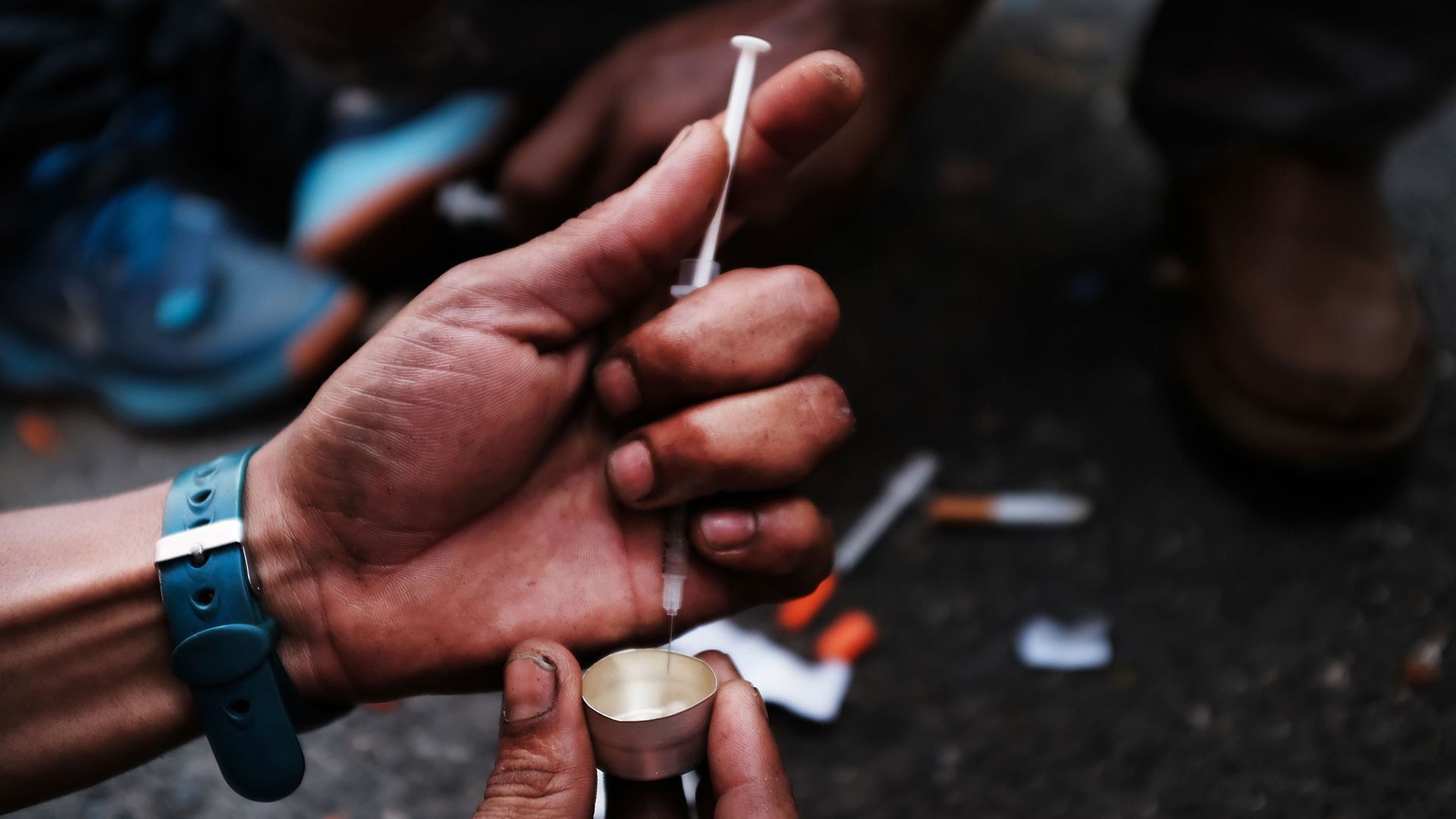Critical opioid funding is running out
Add Axios as your preferred source to
see more of our stories on Google.

Photo: Spencer Platt/Getty Images
The opioid crisis seems to finally be slowing down, but some treatment centers say that fragile progress could slip away if Congress doesn't step in to renew a critical funding stream that's quickly running dry.
The big picture: Congress and the Trump administration signed off in 2017 on a $3.3 billion grant program to helped bolster access to treatment. But that money is beginning to run out, The New York Times' Abby Goodnough reports.
- The problem is especially serious in states that haven't expanded Medicaid. The program offers coverage for addiction treatment that non-expansion states have to make up for with their grant funding.
- North Carolina and Kansas both exhausted portions of their funding months ahead of schedule and Missouri is on a similar trajectory, per NYT.
- Some treatment centers are cutting back on certain services to stretch their money further.
What they're saying: "When we first heard the money was coming, I remember thinking, 'Wow, that's a lot,'" Nora Bock, who helps run treatment programs for Missouri's state government, told the Times. "Now it's like, 'Oh my God, it's nowhere near enough.'"
What's next: Sen. Rob Portman of Ohio told NYT he's concerned that because the rate of overdose deaths nationwide is beginning to level off, Congress could get distracted and turn to other priorities, letting another round of funding wither.
My thought bubble: I'd be less concerned about this next round of funding falling through than the one after that, or the one after that.
- The number of overdose deaths is still staggering, and there are a lot of people in Congress (including Portman) who are still laser-focused on this epidemic.
- But addiction treatment and recovery can be a long — sometimes lifelong — process.
- Even if Congress comes through this time, the fear alone is a reminder that all one-time funding streams eventually run out, putting treatment programs and other long-term supports further in jeopardy every time the acute crisis gets a little better.
Go deeper: There are more opioid overdoses in the suburbs than ever
